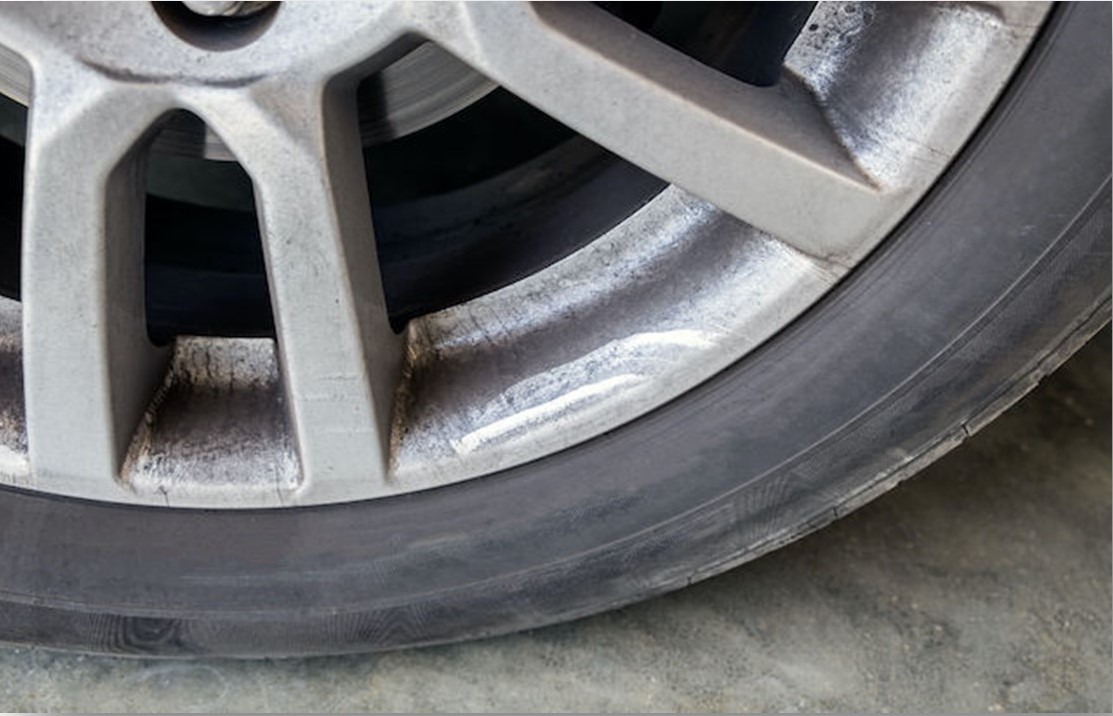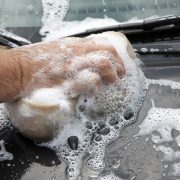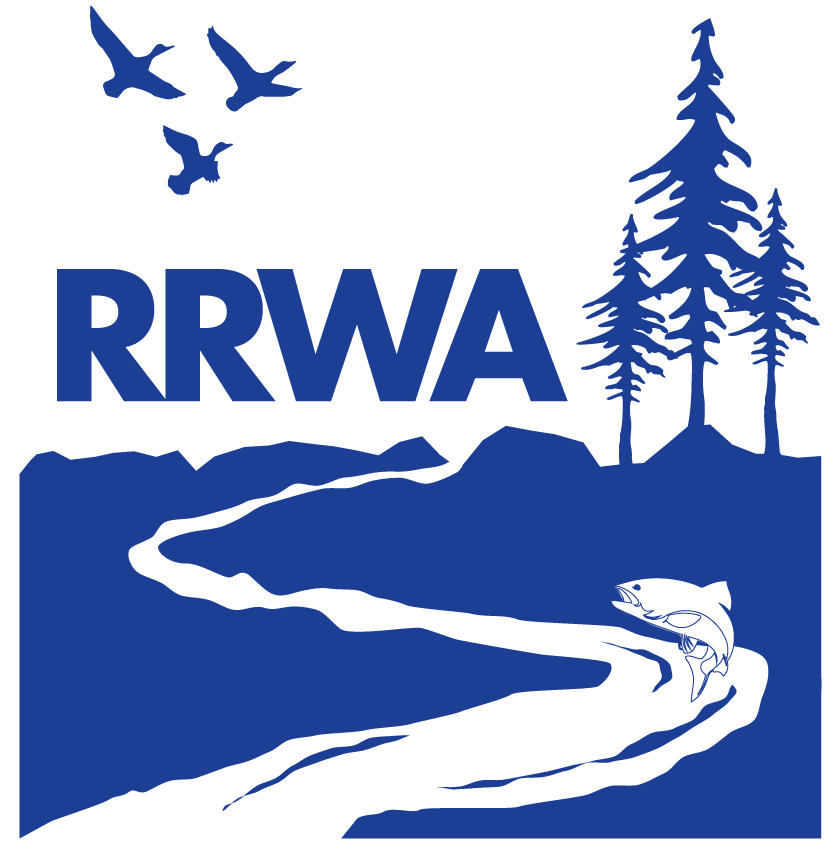Vehicle Cleaning Effects on Storm Water
With spring in full swing and spring-cleaning projects under way, this is a popular time for residents to pull out the hose and bucket of soapy water to wash their cars. Did you know that washing your car at home can be harmful to the environment? One important thing to consider when washing your car is the potential for pollutants and chemicals to enter storm drains.

| Brake dust may contain microscopic fragments of iron/steel particles, carbon, copper, brass, graphite, glass, rubber and other harmful materials. |
Storm drains are designed to carry rainwater and melted snow away from roads and other paved surfaces, and they often flow directly into nearby streams, rivers, or other bodies of water. This means that anything that goes down a storm drain can have a direct impact on water quality and the health of aquatic life and their ecosystems.
When washing your car, many people use soap, wax, and other cleaning products that contain chemicals like phosphates and surfactants. These chemicals can be harmful to aquatic life if they enter waterways in high enough concentrations. Not only can the chemicals used to clean your vehicle be harmful but carbon dust, oil, grease, micro plastics and other contaminants from your car’s engine, brakes and undercarriage can also be washed into storm drains, further polluting the water.
What you can do to minimize the impact that washing your vehicle has on the environment
One option is to use a commercial car wash that recycles its water and uses environmentally friendly cleaning products. These car washes are designed to capture and treat the water that is used, preventing it from entering storm drains and nearby waterways.
If you prefer to wash your car at home, there are a few steps you can take to reduce your environmental impact. First, choose a location that is away from storm drains or other bodies of water. This could be a grassy area that allows for the natural filtration of the water being used or a driveway that allows the water to soak into the ground rather than running off into the street.
Next, use a bucket instead of a hose to wash your car. This will help conserve water and prevent excess runoff. You can also use environmentally friendly cleaning products, which are formulated to be safer for aquatic life and the environment.
Finally, consider disposing of any wastewater properly. You can pour it onto your lawn or garden, down the proper household drain or you can take it to a local wastewater treatment facility. By taking these steps, you can help keep our waterways clean and healthy while still enjoying the benefits of a clean vehicle.




